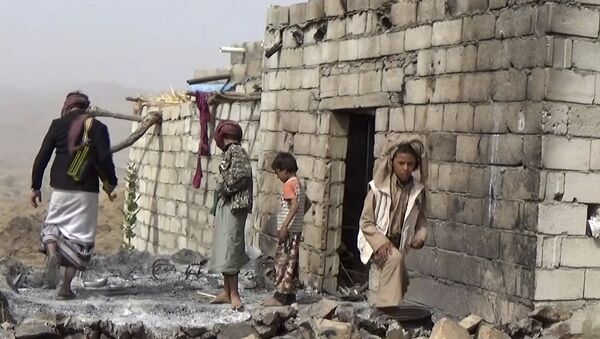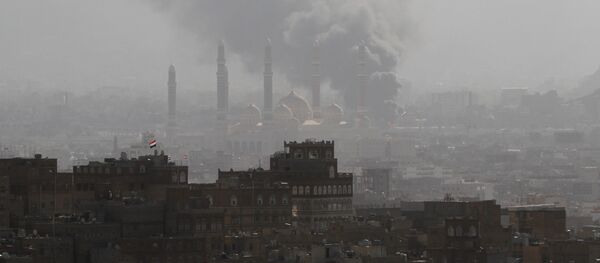In May, the American Civil Liberties Union (ACLU) filed a motion seeking documents about the raid from the CIA as well as the Departments of Defense, Justice and State. The three government departments all turned over their records, but the CIA has refused to admit that such documents even exist.
In an October motion filed to force the CIA to disclose the files, the ACLU argued that there's no way the CIA wasn't involved in the raid. Former White House Press Secretary Sean Spicer said in February that CIA Director Mike Pompeo was present at the dinner during which the operation was approved.
But the US attorney representing the CIA, Rebecca Tinio, argued that didn't necessarily mean the CIA was involved in the raid. Pompeo wears "different hats and different roles," she argued.
Judge Paul Engelmayer asked Tinio what else Pompeo could have been doing at the dinner. "He could have been there to discuss other agenda items," she replied. The judge said that he would rule in the near future on whether or not the CIA would be compelled to release the documents.
Nine days into the Trump administration, US forces conducted their first boots-on-the-ground military operation in war-torn Yemen, sending 40 Navy SEALs to raid a compound believed to be the home of Qasim al-Raymi, leader of the local al-Qaeda affiliate.
"Chief Special Warfare Operator William "Ryan" Owens died of wounds sustained during the Jan. 28 raid. The Navy… https://t.co/gyCj2mQk2f
— Vets 4 Gary Johnson (@Veterans4GJ) December 20, 2017
But the militants were ready for them and a heavy gunfight ensued between the SEALS and the townsfolk. One SEAL was killed and three others wounded, while 14 militants were killed, according to the US military. Civilian death toll estimates have varied, but most fall between 14 and 25 dead — including at least nine children. Al-Raymi was not in the village and is believed to be still at large.
The slain SEAL, Chief Special Warfare Operator William "Ryan" Owens, was the first military casualty of Trump's presidency. The raid received extensive media coverage, particularly after conflicting reports surfaced over whether or not the raid produced valuable intelligence.
Some, such as Rep Ted Lieu (D-CA), have accused Trump and the Pentagon of executing the raid hastily and without full intelligence. Human rights groups such as Amnesty International and Human Rights Watch have suggested that the US military failed to abide by the laws of war, accounting for the operation's high civilian death toll.
One of the ACLU's stated goals by securing the document's disclosure is to receive a definitive accounting of civilian casualties from the battle.
"We have seen that this White House cannot be trusted to give the public accurate information, which is especially critical when the president authorizes military action that kills civilians," said Hina Shamsi, director of the ACLU National Security Project, in a statement.
"The administration's explanations have little credibility, and the documents we seek are essential for public accountability when civilians are killed in the name of our national security."




